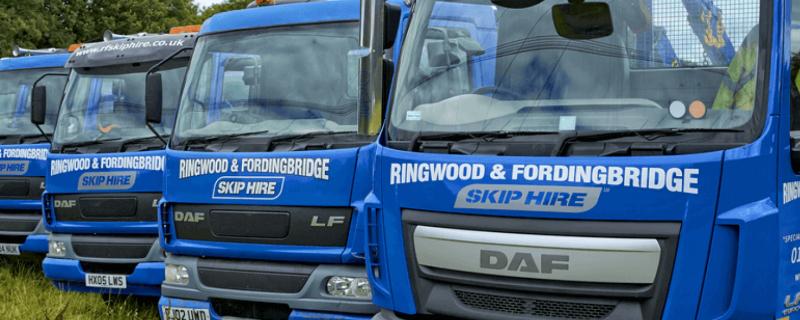How to Get the Most Out of Your Skip Hire
Skip hire is a fundamental part of most construction projects. A convenient and responsible way to dispose and recycle various waste products that this kind of work can often produce, skip hire is commonly used on all types of domestic and commercial projects.
While you might think that using a skip is as simple as just throwing all your waste into it and waiting for it to be taken away, there is a bit more to it than that.
To get the most out of your skip hire and to use it as efficiently as possible, there are a few things you need to be aware of.
In this article, the team here at RF Recycling will go into detail about our leading skip hire services, explaining how you can make the most of skips and keep your next project on track.
To fully make the most of skip hire services, it’s important to fully understand how the process works.
By following the steps below, you can ensure that you always maximise your skip usage.

1. Choose the right skip for your project
Skips are available in a wide range of sizes, and it’s important you select the correct skip size for your project. Choosing one too small will likely mean it will need to be emptied or another one ordered before the end of the project, creating an additional expense for you.
However, if you order one that is too big, the initial cost will be higher than you need.
The best way to ensure you choose the right skip for your project, is by using our skip size calculator.
2. Hire your skip for a day that suits you
You might not need a skip for the entirety of your project, so think carefully about exactly when you’ll need it.
Sometimes, skip hire is charged by the day, so there’s no point having it sitting there for a whole week and incurring costs if you’ll only need it for a day or two.
At RF Recycling, we offer skip hire online booking or you can give us a call.
3. Familiarise yourself with what you can and can’t put in a skip
Perhaps the biggest mistake people make when it comes to loading a skip is putting the incorrect type of waste inside it. While skip hire can handle a whole host of waste products, there are some things that must never be put in a skip.
Things you can put in a skip include:
- Wood
- Metal
- Plastic
- Carpet and upholstery
- Green garden waste
- Cardboard
- Bricks
- Tiles
- Old bathroom and kitchen fittings

Things you can’t put in a skip include:
- Electrical appliances
- Tyres
- Batteries
- Paint
- Fuel
- Gas cylinders
- Mattresses
- Plasterboard
If you put things in your skip that should not be there, you’ll likely incur a fee from the skip hire company so it’s important you only fill it with suitable items.
4. Don’t overfill the skip!
Another big no-no when hiring a skip is overfilling it.
Overfilling a skip can be extremely dangerous as objects might fall out and pose a hazard to other road users or pedestrians when the skip is collected. In fact, a skip hire company may flat-out refuse to take your skip if it has been overfilled.
Skips will typically come with a fill limit, so make sure you do not exceed it. To maximise the space in your skip and to reduce the likelihood of overfilling, you should break down big, bulky objects into smaller pieces.

5. Call us and we’ll take it away
Once you’re finished with your skip, simply give RF Recycling a call and a member of our team will be on our way to collect it.
You will also receive peace of mind that your waste will be responsibly disposed of, as we have our own dedicated recycling centre where we can process your waste.
If you’re looking for skip hire in Ringwood, Salisbury, Bournemouth and beyond, RF Recycling is here to help. We offer leading skip services that can help seamlessly progress your project and handle your waste in the most responsible manner. For more information on what we do, get in touch with our team today.



















